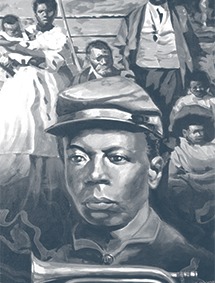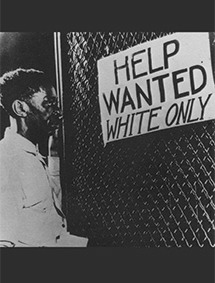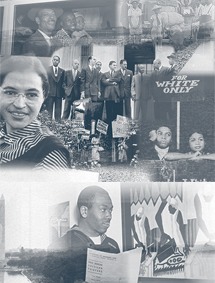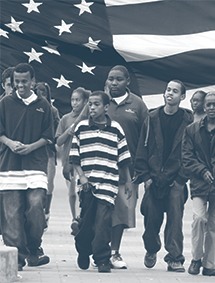Jim Crow Museum
1010 Campus Drive
Big Rapids, MI 49307
[email protected]
(231) 591-5873


Africa Before American SlaveryThe peoples of West Africa had rich and diverse histories and cultures centuries before Europeans arrived. Africans had kingdoms and city-states, each with its own language and culture. The empire of Songhai and the kingdoms of Mali, Benin, and Kongo were large and powerful with monarchs heading complex political structures.... Read More |

Slavery in AmericaWithin several decades of being brought to the American colonies, Africans were stripped of human rights and enslaved as chattel, an enslavement that lasted more than two centuries. Slavers whipped slaves who displeased them. Clergy preached that slavery was the will of God. Scientists "proved" that black people were less evolved-a subspecies of the human race. The invention of the cotton gin in 1793... Read More |

ReconstructionIn the tumultuous years following the United States Civil War, the federal government was faced with two conflicting challenges: to reincorporate the eleven states that had seceded from the Union, and to define and implement a strategy for ensuring the economic, political, and social rights of newly-freed black Americans... Read More |

Jim CrowThomas Dartmouth Rice, a struggling white actor, became famous by performing in blackface makeup as "Jim Crow," an exaggerated, highly stereotypical black character. By 1838, the term "Jim Crow" was being used as a collective racial epithet for black people, not as offensive as nigger, but as offensive as coon or darkie... Read More |

Civil RightsIn the 19th and 20th centuries, the resistance of African Americans to their oppression was expressed in three general approaches, as illustrated by prominent leaders. Booker T. Washington (1856-1915) stressed industrial schooling for African Americans and gradual social adjustment rather than political and civil rights... Read More |

Post Civil RightsAfrican Americans did not emerge from the civil rights movement fully integrated into American society; this is evident by the disproportionately large numbers of black people who are in poverty, under-educated, and incarcerated. Nevertheless, the civil rights movement did force the end of legal segregation... Read More |